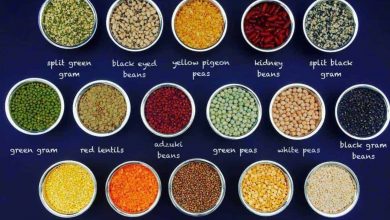
Maintaining a healthy heart is crucial for overall well-being, and one of the key ways to achieve this is through a balanced and heart-healthy diet. The food choices we make play a significant role in our cardiovascular health, influencing factors such as cholesterol levels, blood pressure, and overall heart function. In this blog, we’ll delve into a comprehensive list of heart-healthy food options that can contribute to a robust cardiovascular system.
1. Fatty Fish for Omega-3 Fatty Acids
Fatty fish, such as salmon, mackerel, and trout, are rich in omega-3 fatty acids. These essential fats have been shown to reduce the risk of heart disease by decreasing inflammation, lowering blood pressure, and improving cholesterol levels. Including fatty fish in your diet a couple of times a week can contribute to a healthier heart.
2. Berries for Antioxidants
Berries, including blueberries, strawberries, and raspberries, are packed with antioxidants. Antioxidants help reduce oxidative stress and inflammation, which are linked to heart disease. Additionally, berries are rich in fiber, promoting healthy digestion and contributing to lower cholesterol levels.
3. Oats for Soluble Fiber
Oats are a fantastic source of soluble fiber, which helps lower cholesterol levels by reducing the absorption of cholesterol into the bloodstream. A bowl of oatmeal for breakfast or incorporating oats into your baking and cooking is an excellent way to boost your heart health.
4. Nuts and Seeds for Healthy Fats
Almonds, walnuts, chia seeds, and flaxseeds are all examples of nuts and seeds that are high in omega-3 fatty acids, fiber, and heart-healthy nutrients. Snacking on a handful of nuts or adding seeds to your salads and yogurt can be a tasty and heart-smart choice.
5. Leafy Greens for Vitamins and Minerals
Leafy greens, such as spinach, kale, and Swiss chard, are rich in vitamins, minerals, and antioxidants. They are also low in calories and high in fiber, making them an excellent choice for heart health. These greens can be easily incorporated into salads, smoothies, or as side dishes to main meals.
6. Avocado for Monounsaturated Fat
Avocado is a nutrient-dense fruit that is high in monounsaturated fat, which is a heart-healthy fat. It also contains potassium, which helps regulate blood pressure. Adding slices of avocado to sandwiches, salads, or enjoying guacamole can be a delicious way to support heart health.
7. Tomatoes for Lycopene
Tomatoes are rich in lycopene, a powerful antioxidant that has been linked to heart health. Lycopene may help lower levels of LDL (bad) cholesterol and reduce the risk of heart disease. Whether fresh in salads or cooked in sauces, incorporating tomatoes into your meals is a tasty strategy for heart wellness.
8. Garlic for Allicin
Garlic contains allicin, a compound that has been associated with various cardiovascular benefits, including the reduction of cholesterol and blood pressure. Adding fresh garlic to your dishes not only enhances flavor but also contributes to heart health.
9. Olive Oil for Monounsaturated Fats
Olive oil is a staple of the Mediterranean diet and is rich in monounsaturated fats. These fats are known for their cardiovascular benefits, including reducing inflammation and improving cholesterol levels. Using olive oil as a primary cooking oil or drizzling it over salads is a heart-smart choice.
10. Dark Chocolate for Flavanols
Yes, you read it right, dark chocolate, in moderation, can be good for your heart. Dark chocolate contains flavanols, which have been shown to improve heart health by increasing blood flow and reducing blood pressure. Opt for chocolate with at least 70% cocoa content for the maximum heart benefits.
Conclusion
Incorporating a variety of heart-healthy foods into your diet is a proactive and enjoyable way to support cardiovascular health. Remember that a balanced and diverse diet, combined with regular physical activity and other healthy lifestyle choices, plays a crucial role in maintaining a healthy heart. Consult with a healthcare professional or a registered dietitian to create a personalized plan that suits your specific dietary needs and health goals. By making informed food choices, you can savor the flavors of a heart-healthy life.



